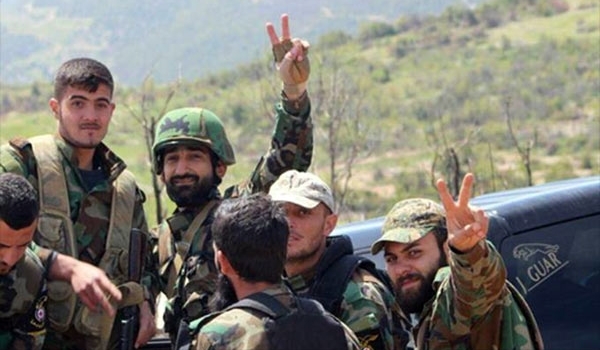
RNA - With “moderate” militant groups leaving, there is no date scheduled for additional talks either, meaning, it might take a year to make a serious run at another deal. What happens next is not at all clear. For now, though, hopes for a serious new push in the near term seem remote.
There are many factors as to why the representatives of the Syrian government and foreign-backed militant groups are not coming to peace just yet, mainly:
1- There still isn’t much appetite to compromise on a post-war situation on the part of regime changers. The “moderate” militants are continuing to insist the ouster of President Bashar al-Assad is the key to the whole thing. This will only embolden the position of terrorist groups. Moreover, this is just an excuse to create a power vacuum and go for the ultimate goal i.e., regime change. That says why neither the Syrian government nor the Russians are willing to concede that as a precondition, saying Assad’s status should be decided in elections.
2- The so-called moderate militant groups chose to return to war because they have no intention to help enforce or verify a post-treaty transition that only takes into consideration the interests of the Syrian people, which is having the right to determine their own fate. The militants and their supporters refuse to assist with such implementation.
3- The negotiations must do more than resolve the underlying issues over which the war has been fought. The biggest challenge is not how to resolve disagreements over territory, majority rule, or any of the underlying grievances that “partially” started the war. These are difficult issues, but they are not the most difficult. The greatest challenge is to design a treaty that convinces the combatants to shed their rebel armies, surrender conquered territory, and abide by the rule of law. The rest will come easy.
4- An important reason why the negotiations failed is because it is almost impossible for the militants themselves to arrange credible guarantees on the terms of a settlement. Their foreign backers, including the United States, Saudi Arabia, and regional cronies, are not willing to enforce demobilization either, including a complete halt to arms deliveries.
5- Resolving the war requires much more than negotiating a bargain and establishing a cease-fire. The Syrian government wants peace. It also wants to integrate the previously warring fractions into a single state, create a new alliance capable of accommodating their interests, and rebuild the national military force to push all foreign-backed terrorist groups out of the country - a single cause. This is not what the regime changers in Washington and Riyadh, admittedly the main supporters of the militants, have in mind.
6- Another important explanation for the failure of negotiations is the situational factors, conditions that make the war ripe for resolution. Here, despite the high costs of the war, the European refugee crisis, and a global call to peace, the regime changers keep escalating. For instance, the Pentagon is sending additional troops and Special Forces to train these so-called moderate militants. Obviously, they don’t want to hand over a unilateral victory to the Syrian government. They want to create a balance of power before peace, and achieve a great enough superiority for their “moderate” militants to be sure that they will still have a say in Syria’s future i.e., sharing political power at least - if not forfeiting monopoly control of the government. This is of course wishful thinking.
The above-mentioned factors and many others explain why the so-called “moderate” militants are not in the mood to favor settlement just yet. The powerful reality is that future negotiations will also have no chance to succeed unless the “moderates” and their foreign backers are able to resolve the issues driving the unnecessary war of attrition (regime change fantasy and partition of Syria on ethnic-sectarian lines) and reach a mutually agreeable deal (Syria functioning as a unitary state – not as a federal - and a political status, including President Assad’s fate, being decided in elections).
R۱۱۱/۱۰۸/C/